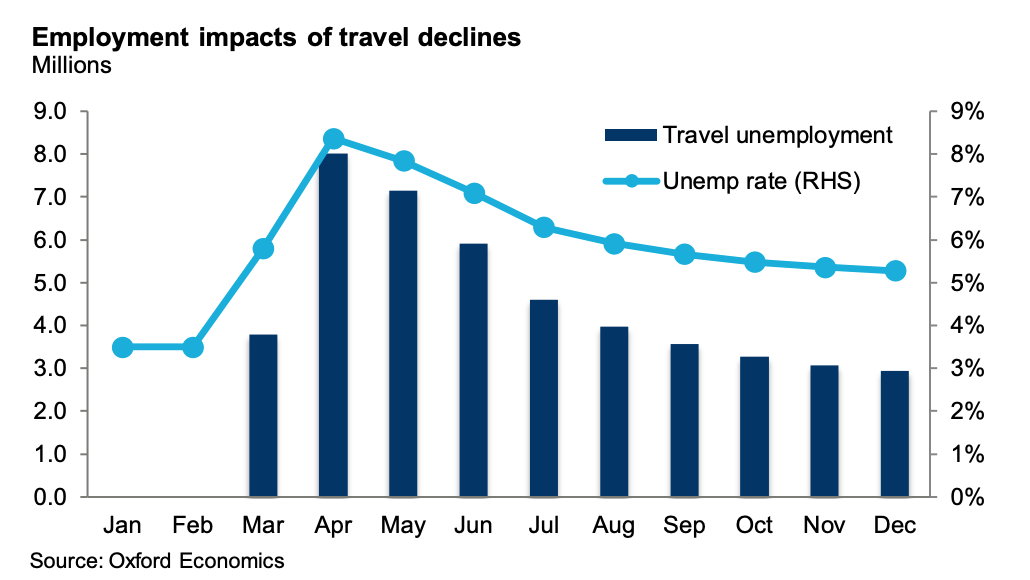It seems hard to believe, but the crippling impact on the travel industry from the coronavirus is much worse than the 9/11 attacks that forced the White House to ground all flights.
The U.S. Travel Association said that the industry had “lost” a third of its U.S.-based jobs, eight million of 24 million jobs.
And travel spending on airlines, hotels, and the hospitality industry has sunk so low that spending losses will top half a trillion dollars this year.

“A $519 billion decline in travel spending in the U.S. this year will translate into a total economic loss of $1.2 trillion in economic output. This is more than nine times the impact of 9/11 on travel sector revenue,” said the association in a new report shared with Secrets.
International spending on the U.S. travel industry sunk $25 billion after 9/11, said the group’s report issued by Oxford Economics. The virus crisis is expected to whack it $116 billion.
U.S. Travel Association President and CEO Roger Dow urged quick passage of additional stimulus money, especially for payroll protection. “We’re appealing for fixes, the addition of more relief, faster rules, and greater flexibility,” he said in releasing the economic data.
“The relief program needs to fit the crisis, and we’re still learning the magnitude and intricacies of this particular crisis,” he said.
He urged Washington to add at least $600 billion to the payroll protection plan and to open it up for expenses.
The report he released, “The Impact of COVID-19 on the United States Travel Economy,” detailed the devastation that has prompted several airlines to seek significant help from the Treasury.
Some new details from the association:
- Overall travel spending last week plunged to $2.9 billion — an 85% drop since the first week of March and 87% lower than the same week in 2019.
- 90% of travelers surveyed had some type of travel or travel-related activity planned before the COVID-19 outbreak and 80% of those either canceled or postponed those plans.
- International visits to the U.S. will decline 54% this year, assuming partial opening of borders in the second half of 2020.

